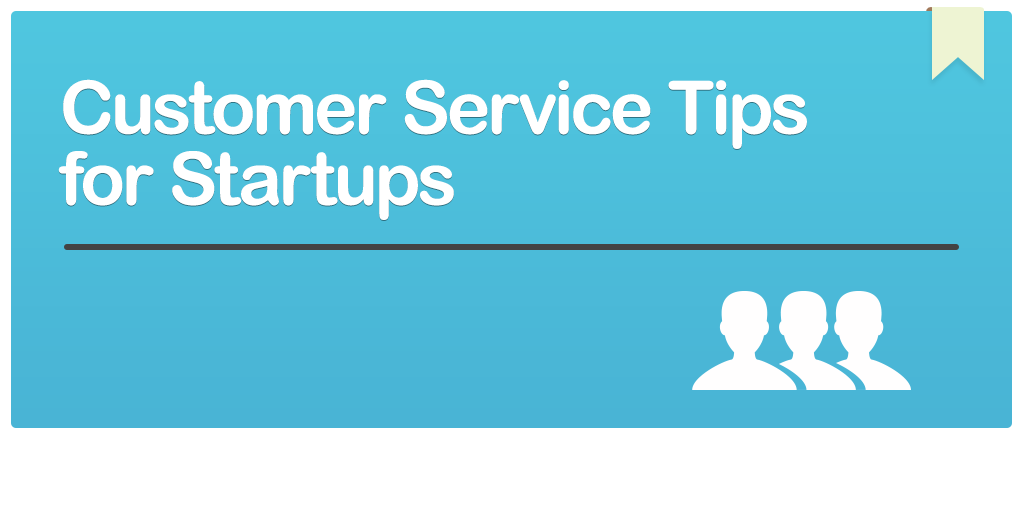
Many startups aren’t focusing on customer service at the very early stage, which means it can be the perfect competitive advantage for those willing to make the investment and do it right. It will require a big time investment upfront, and a reorganization of your schedule, and you’ll never be “done” with it – but that shouldn’t scare you away! Just because it’s hard doesn’t mean you should avoid it.
Why? Because talking with your customers can be the canary in the coal mine that saves your startup from an untimely death.
How Customer Service Gives You a Fighting Chance
Listening to customers can be a frustrating experience if you don’t know what you’re getting out of it. Sitting at your computer, responding to questions that were already answered on your website, and quietly cursing the day you were born as your public-facing customer support email address is added to less-than-trustworthy spam sites – it can add up to high blood pressure and a strong desire for a Xanax. Before you shutdown your company in frustration, however, you should know that by focusing on customer service your startup benefits in a few unobvious ways.
It Teaches You About Your Customers
One of the most reliable ways to find out about your customers is talking with them. Sadly, many times your customers are out living their lives and running their businesses, which leaves little available time for chit chat. However, customer service provides the perfect opportunity to speak with them about what’s happening in their lives, how you can help them, and what their experiences are like using your products.
In every conversation with a customer, you should try to guide the discussion towards an open exchange of ideas. If a customer comes in with a complaint about a feature not working the way they expected, respond by not only answering their question but prompting them to share their expectations of how they would like it to work. These small exchanges can build up over time into a picture of your customer that is especially useful if you’re a startup still figuring out your long-term growth and customer retention strategies.
It Clarifies What’s Important
When speaking with your customers it’s important to always tell the truth. You don’t want to end up saying something to a customer and then six months later doing the complete opposite. It can sound scary, but everything you say to your customers should be treated as if it was a public statement on behalf of your company. Most of the time this won’t end up being a big issue, as customers will typically ask for minor clarifications about your products or account management issues.
However, every once in awhile a customer will ask about an issue that is more sensitive. For example, it might be about the development of a feature that you haven’t fully planned out yet, or about a potential partnership that is in the works. While it may be tempting to give a noncommittal answer that doesn’t box you in, you’d be missing an opportunity. Instead, by choosing to be transparent about questions that you haven’t publicly addressed before, you’re forcing yourself to clarify your position publicly. This clarity is indispensable, as it forces you to pick one path, stick to it, and be held accountable by the public.
It Creates a Customer-Centric Culture
As a startup, one of your team’s greatest advantages is that the smallest decisions and changes in company policy can dramatically impact company culture. If the founders don’t wear suits, none of the employees will. If the sales team shares rewards collectively, it will create a collective work environment. Similarly, if the leaders of your team are involved in talking with customers and ensuring customer happiness, the entire team will re-center themselves around customers.
This customer-centric culture is no trivial matter. When your team speaks with your customers and helps them with the daily issues that come up, the quality of your products will rise. Your designers will have a better appreciation for how customers use the product, your engineers will have direct access to the customers that send in bug reports, and your sales team will begin to learn what really matters to customers on a daily basis. As these teams learn and grow based on their interactions with customers, your entire business will be less about what matters to any one team member and be more about what benefits all of the customers as a whole.

Key Things for Every Founder to Keep in Mind
As the above shows, the allure of providing great customer service is that it gives your business an advantage. This advantage stems from the fact that as you better understand your customers you gain a better understanding of the challenges your business face. Taking the initiative to gain this advantage is great, but there are a few common mistakes that you would be wise to avoid.
Tools Are Your New Best Friend
As a startup, your first few customers were probably close friends, past colleagues, and family. These were people that you personally knew and were in touch with on a regular basis with your personal email address. This is fine at the beginning, but as your company grows and more people are involved in conversing with customers, you need to move away from a first-name basis customer support system and towards a scalable system with dedicated tools that anyone can use.
For most startups, this means that you need to stop using Gmail as the center of your customer support and use a tool like HelpScout, Desk, or FreshDesk (among many others). Many of these tools are designed with small, nimble teams in mind. When you set up an account, every team member has access to the full history of your conversations with customers, and your customer’s account information can be tied to the conversation threads you’re currently working on. These improvements – and many, many others – are best implemented at the beginning of your customer service journey rather than 9 months down the road when the wheels are falling off.
Workflows Should be Implemented at the Beginning
In the same vein as the great tools section above is the need for great workflows. Workflows are the step-by-step process you create that guides what steps your team needs to take and what you should say in any given situation. Without instituting workflows at the very beginning, your team will quickly begin to play fast-and-loose. This means that two customers can send the same exact message and – depending on who gets assigned the ticket – receive two drastically different responses. This is something you need to avoid from the get-go.
For example, if a customer emails about changing their password, you should have a pre-existing template in place that sends the same message and links to every customer. This not only saves time for your team, but also makes sure that customers are getting the right answers.
When in Doubt, Be Honest
Many startups have competitors that have been in business for decades longer. These competitors may seem impressive with their $500 office chairs, free catered lunch, and operations teams that can handle any problem with ease. This admiration can sometimes cause startups to copy aspects of their publicly traded competitors, like the oft-given “no comment.”
While giving a no comment to customers may brush the problem aside, it doesn’t really help you. Instead of emulating companies that are shrouding their plans in secrecy, try being honest. Even if the answer isn’t flattering it can buy you goodwill with your customers.
The Final Word: Retention
At the end of the day, the most important reason startups should focus on providing great customer service is that it keeps your customers happy. By making sure that customers are being heard and their thoughts are being taken into account for future plans, you’re guaranteeing that a larger percentage of your customers will be around a year later than if you did nothing at all. For a startup, that’s all that really matters.
